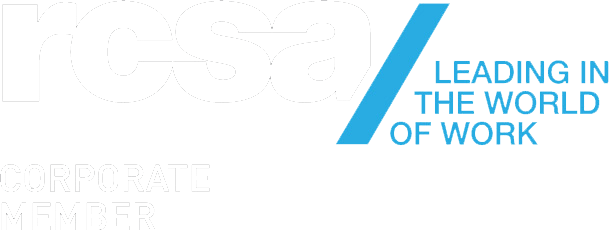Thinking about changing careers - how about recruitment?
If you're considering a move into recruitment, then you've come to the right place. Recruitment is perfect for those who love working collaboratively with people, are highly organised and motivated by fast-paced work. Recruitment is an exciting and growing industry, and there are plenty of opportunities for career growth should you want to pursue career advancement.
In this blog post, we will discuss everything you need to know about a career in recruitment. We'll talk about the different roles within recruitment, what skills you need to succeed, and how to get started in your new career.
So, what exactly is recruitment?
Recruitment is the process of finding and hiring employees for an organisation. It involves finding potential candidates, attracting and screening them, and then matching them to the right job openings and coaching them through interviews. It's about building business relationships that become mutually beneficial to all parties.
In recruitment, you essentially have two key customers - candidates and clients. Candidates are the people who are looking for a job, and clients are the organisations who are looking to hire. As a recruiter, you will be responsible for managing both of these relationships. You'll need to understand the needs of both candidates and clients and work together to find the best possible match.
This can be a highly rewarding career, as you are responsible for helping people find their dream job, and helping businesses find the best talent. Sometimes everything drops into place seamlessly but sometimes a process can take a long time - requiring extensive searching, many conversations, and a high level of influence on your part.
There are many different roles within recruitment, from entry-level positions to senior management roles. The most common role is that of a recruiter, which is a position that involves sourcing candidates, screening them, and matching them to job openings. Recruiters typically work with a specific industry or sector, so they have a deep understanding of the skills and qualifications needed for those jobs. Some recruiters look after permanent hires only, some look after temporary and/or contract hires, and some dedicate their work to a particular location.
Benefits of a career in recruitment?
There are many benefits to a career in recruitment. Here are just a few:
- You will have the opportunity to work with a wide range of people, from job seekers to hiring managers.
- You will have the chance to learn about different industries and sectors.
- You will be able to develop your skills in sourcing, screening, and matching candidates to job openings.
- You will have the opportunity to work in a dynamic and growing industry.
- There are opportunities to progress to leadership roles where often the onus is more on the overall billing of the team rather than your personal billings.
- You can work reasonably flexibly, with many opportunities to work from home or remotely these days.
- You can make good money! There are strong financial incentives in place for targets being met and exceeded and recruitment can be a very lucrative career if you are good at what you do and there is no ceiling on what stage you can start earning the big bucks.
Challenges of a career in recruitment?
Like any job, there are also some challenges associated with a career in recruitment. These include:
- The role can be fast-paced and demanding, with tight deadlines and high pressure.
- There can be many moving parts and people change their minds, roles fall over, or don't get approvals - you will need resilience to deal with the ups and downs.
- You will need to deal with rejection on a daily basis and manage giving feedback.
- It can be a very competitive space.
- The industry can be plagued with cowboy characters and thus a bad reputation in some cases.
The challenges can be plentiful, but the gratifying aspects are immensely satisfying, and it's often what keeps recruiters coming back for more.
What does a day in recruitment look like?
As the saying goes, no two days are the same! This is true for recruitment too and despite the best made 'to do' lists, they can go out the window if something else demands your attention. However, in terms of recruitment activity - you will typically find yourself screening and interviewing candidates, taking a job brief visiting clients on-site, advertising roles and reviewing applications, organising interviews, and providing feedback. You could be making an offer to a candidate after working closely with them and guiding them through their resignation.
To thrive in a job in recruitment, you must have excellent interpersonal skills and the ability to build rapport rapidly. You'll also need high emotional intelligence - not only do you need to listen, interpret clues, ask intelligent questions, and multitask but you must also be able to manage several activities at once.
How to get started in your new career?
The best way to get started in a career in recruitment is to speak to recruiters to learn firsthand what each day/week/month entails and if it's for you. You could be fresh out of university or perhaps worked in another industry for many years. There are many improvements in technological advancements in the industry now that have meant such tools of the trade can further enhance a recruiter's performance.
Whilst having had some exposure to business work previously is always a bonus, and yes, many recruiters often come from the industry they work in - for example, an Accountant becoming a finance recruiter or an IT professional becoming a tech recruiter. However, there are also plenty of transferable skills from other life experiences that lend themselves to recruitment and make the transition quite easy.
For example, if you have a background in sales, marketing, customer service, real estate, or even professional sport, you will have many of the skills required to be a successful recruiter. Think about anything that has given you skills of discipline, hard work, organisation, resilience, communication, influence, people management, and problem-solving.
Being successful at anything is as much about mindset as it is about experience. Sure, the more you work on different roles and run more processes the more confident you will become but many often underestimate the power of the right attitude. If you can get your head in the right space and be truly committed to success and follow best practices, then this will take you a long way.
If you would like to pursue a career in recruitment, then speak to us here at West Recruitment. We will be able to provide you with more information about the different roles within recruitment, how to get started in your journey, and the training provided.





